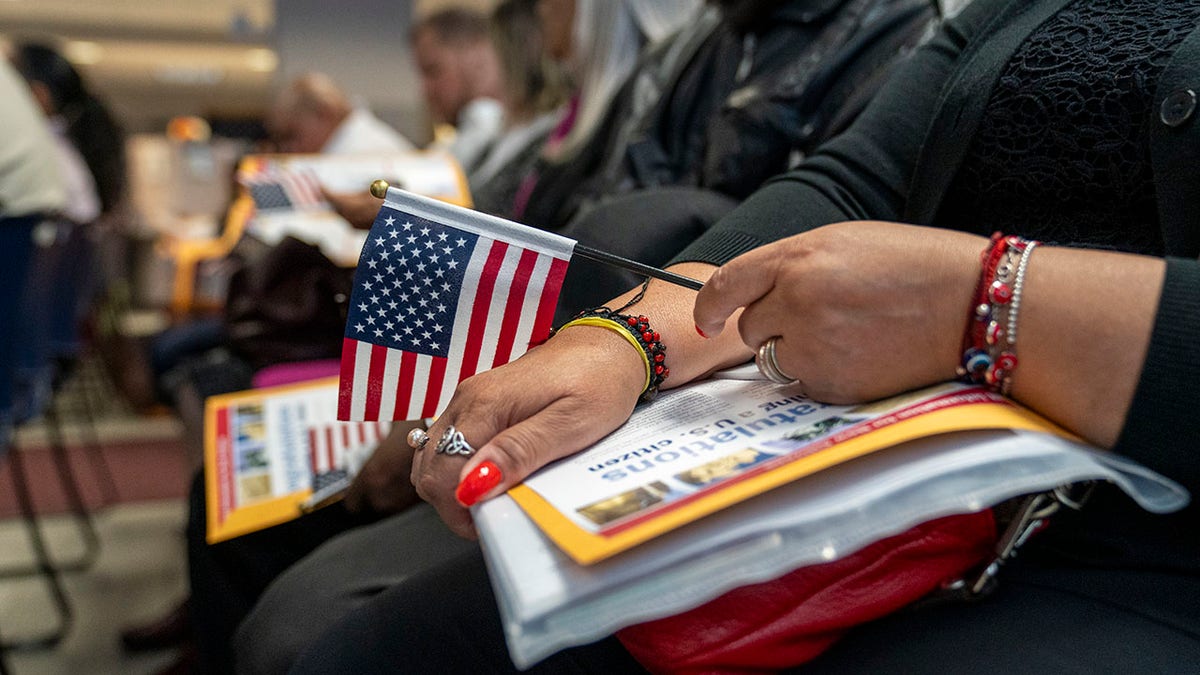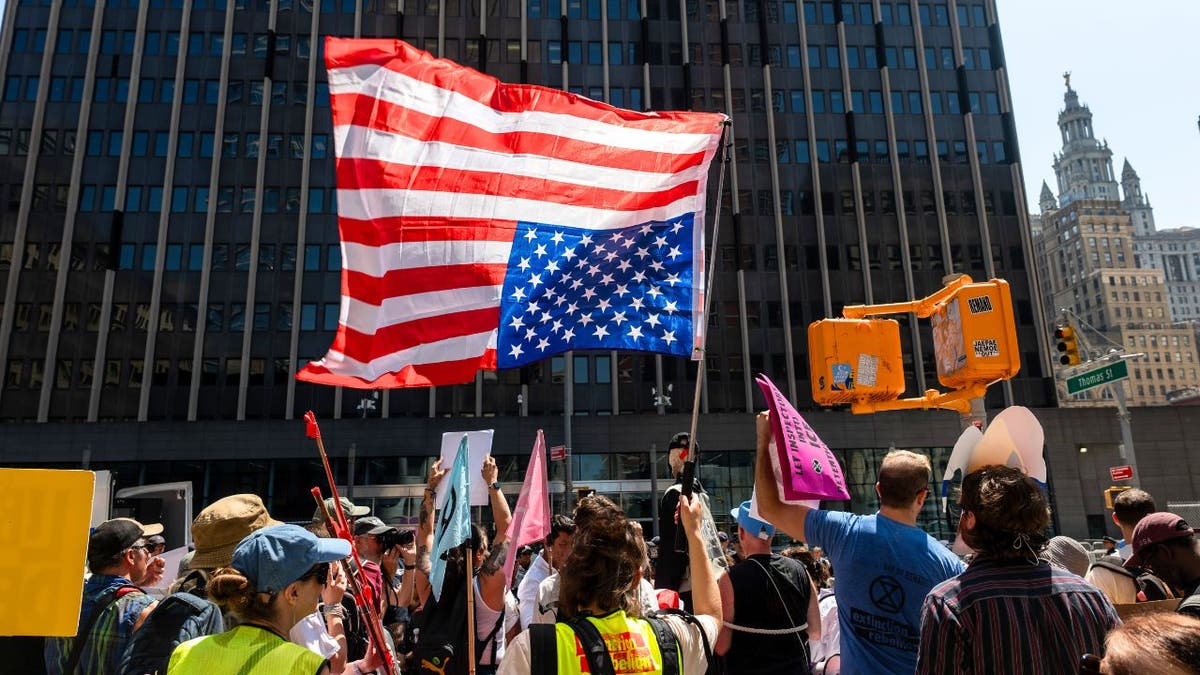Share this @internewscast.com
Federal officials are now being instructed to vet immigrants looking to legally live and work in the U.S. for “anti-American,” terrorist, or antisemitic views under new guidance.
The updated policy, part of President Donald Trump’s broader immigration clampdown, gives U.S. Citizenship and Immigration Services (USCIS) officers broad discretion to treat such views as “overwhelmingly negative factors” when deciding whether to approve green cards, visas or citizenship. The guidance took effect immediately and applies to both new and pending applications.
“America’s benefits should not be given to those who despise the country and promote anti-American ideologies,” USCIS spokesperson Matthew Tragesser said.

Federal officials are now being instructed to vet immigrants looking to legally live and work in the U.S. for “anti-American,” terrorist, or antisemitic views under new guidance. (Robert Nickelsberg / Getty Images)
“The message is that the U.S. and immigration agencies are going to be less tolerant of anti-Americanism or antisemitism when making immigration decisions,” Elizabeth Jacobs, director of regulatory affairs and policy at the Center for Immigration Studies, a group that advocates for immigration restrictions, said on Tuesday.
Jacobs said the government is being more explicit in the kind of behaviors and practices officers should consider, but emphasized that discretion is still in place. “The agency cannot tell officers that they have to deny — just to consider it as a negative discretion,” she said.
But Ruby Robinson of the Michigan Immigrant Rights Center argued constitutional rights apply to all people in the U.S. regardless of status — and predicted legal challenges.
“A lot of this administration’s activities infringe on constitutional rights and do need to be resolved, ultimately, in courts,” Robinson added.
Critics like David J. Bier, the director of immigration policy at the libertarian Cato Institute, warned the policy could be wielded to silence dissent and punish political opponents.
“This is a new powerful weapon in President Trump’s arsenal against politically disfavored groups,” Bier told the Washington Post.

Protesters with the group Extinction Rebellion hold a rally and march outside the immigration court at the Jacob K. Javits Federal Building on Aug. 11, in New York City. (Spencer Platt/Getty Images)
Jonathan Grode, managing partner of Green and Spiegel immigration law firm, said the policy fits Trump’s longstanding approach and that the administration is within its authority.
“This is what was elected. They’re allowed to interpret the rules the way they want,” Grode told the Washington Post. “The policy always to them is to shrink the strike zone. The law is still the same.”















